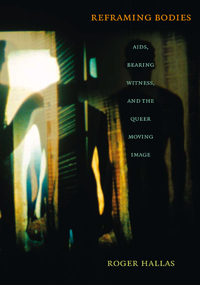Syracuse Stage Opens Season With Production of WWI Musical ‘The Hello Girls’
Syracuse Stage begins the 2025-26 season with “The Hello Girls,” with music and lyrics by Peter Mills and book by Peter Mills and Cara Reichel. Featuring fresh orchestrations, new staging and reworked material, this new production of “The Hello Girls”…


 “Queer AIDS media are neither mere ideological critiques of the dominant representation of homosexuality and AIDS, nor corrective attempts to simply produce ‘positive images’ of people living with HIV/AIDS,” says Hallas. “Rather, they perform complex mediated acts of bearing witness to the individual and collective trauma of AIDS.” The author goes on to say that moving images ostensibly played a vital role in AIDS cultural activism during the 1980s and 1990s.
“Queer AIDS media are neither mere ideological critiques of the dominant representation of homosexuality and AIDS, nor corrective attempts to simply produce ‘positive images’ of people living with HIV/AIDS,” says Hallas. “Rather, they perform complex mediated acts of bearing witness to the individual and collective trauma of AIDS.” The author goes on to say that moving images ostensibly played a vital role in AIDS cultural activism during the 1980s and 1990s.